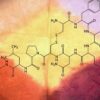Genes play a larger role in how our bodies respond to physical exercise, according to a new study in PLOS One.
As part of their study, researchers at Anglia Ruskin University examined the results of more than 3,000 adult participants between the ages of 18 and 55 with no history of exercise training. The training sought to assess how genes may affect muscle strength, cardiovascular fitness, and anaerobic power.
Researchers discovered that up to 72 percent of the difference between people in performance outcome upon exercise could be the result of genetic differences.
“Our study found 13 genes that have a role in exercise outcomes, and we found that specific alleles contained within these genes are more suited to certain aspects of fitness,” the authors explained in a news release. “For example, with repetition exercises designed to boost muscular strength, genetic differences explained 72% of the variation in outcomes between people following the same training.”
“Because everyone’s genetic make-up is different, our bodies respond slightly differently to the same exercises. Therefore, it should be possible to improve the effectiveness of an exercise regime by identifying someone’s genotype and then tailoring a specific training programme just for them,” researchers added.
“We know that exercise is good for us, but we all improve at different rates, even when following identical training regimes. This means there are other factors at play.”


